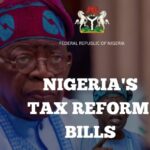Forex trading, also known as foreign exchange trading, involves the buying and selling of currencies in the global market. It has gained immense popularity in Nigeria due to its potential to generate income and its accessibility via online trading platforms. The forex market is the largest financial market in the world, with daily trading volumes exceeding $6 trillion. For Nigerians, this presents an opportunity to participate in global financial transactions from the comfort of their homes.
The appeal of Forex trading lies in its flexibility; it can be pursued part-time or full-time depending on one’s schedule. However, the journey to becoming a successful forex trader requires patience, knowledge, and discipline. This guide provides practical tips and insights for beginners in Nigeria to navigate the forex market effctively and avoid common pitfalls.
1. Basics of Forex Trading
Before diving into the forex market, beginners in Nigeria must build a solid understanding of its fundamental concepts. Here are the key components to focus on:
Currency Pairs
Forex trading involves trading currency pairs, such as EUR/USD or GBP/NGN. The first currency in the pair is the base currency, and the second is the quote currency. For instance, if you trade EUR/USD, you’re speculating whether the euro will strengthen or weaken against the US dollar.
Pips, Lots, and Leverage
- Pips: A pip is the smallest price movement in a currency pair. Understanding pips is crucial for calculating profits and losses.
- Lots: Forex trades are conducted in lots, which represent standardized units of currency. Beginners often start with micro or mini lots to minimize risk.
- Leverage: Leverage allows traders to control large positions with relatively small capital. While this increases potential profits, it also amplifies losses, so use leverage cautiously.
Trading Platforms
Most Nigerian traders access the forex market via trading platforms like MetaTrader 4 (MT4), MetaTrader 5 (MT5), or proprietary broker platforms. These platforms provide essential tools such as charts, indicators, and order execution functionalities.
Regulatory Awareness
It is important to choose a reputable and regulated forex broker. In Nigeria, the Central Bank of Nigeria (CBN) does not directly regulate forex trading but advises caution. Opt for brokers regulated by international authorities such as the FCA, CySEC, or ASIC.
2. Essential Tips for Successful Forex Trading
Start with a Demo Account
For beginners, practicing on a demo account is an invaluable first step. Demo accounts allow you to trade with virtual funds in real market conditions without risking your capital. Use this opportunity to:
- Familiarize yourself with the trading platform.
- Test different trading strategies.
- Learn how to interpret charts and indicators.
Develop a Trading Plan
A well-structured trading plan is your roadmap to success. Your plan should include:
- Goals: Define clear financial objectives.
- Risk Management: Set rules for how much you’re willing to risk per trade.
- Strategies: Outline your trading approach, such as day trading, swing trading, or scalping.
Risk Management Is Key
Forex trading is inherently risky, but sound risk management can help you minimize losses. Key principles include:
- Using stop-loss orders to limit potential losses.
- Risking no more than 1-2% of your trading capital per trade.
- Diversifying your trades to avoid overexposure to a single currency pair.
Educate Yourself Continuously
The forex market is dynamic, and staying informed is essential. Beginners should:
- Read books and articles on forex trading.
- Follow market news and economic reports.
- Attend webinars and take online courses.
3. Challenges Nigerian Traders Face and How to Overcome Them
Forex trading in Nigeria comes with unique challenges. Understanding and addressing these challenges is vital for long-term success.
Limited Access to Funds
Many Nigerians face difficulty funding their trading accounts due to restrictions on international transactions. To overcome this:
- Use brokers that accept Nigerian payment methods such as local bank transfers, Paystack, or Flutterwave.
- Consider funding accounts with e-wallets like Skrill or Neteller.
Volatility in the Naira
The Nigerian naira is subject to frequent fluctuations due to economic instability. Traders should:
- Be cautious when trading currency pairs involving the naira.
- Focus on major currency pairs like EUR/USD or GBP/USD for better stability and liquidity.
Lack of Regulatory Clarity
The absence of local forex market regulation can expose traders to unregulated brokers and scams. Protect yourself by:
- Researching and selecting brokers regulated by reputable international organizations.
- Avoiding brokers with unrealistic promises of guaranteed profits.
Internet and Power Supply Issues
Unreliable internet and power supply can disrupt trading activities. Mitigate these issues by:
- Investing in a reliable internet service provider.
- Having a backup power source, such as an inverter or generator.
4. Strategies for Long-Term Success in Forex Trading
Focus on Learning Over Earning
As a beginner, prioritize learning rather than chasing profits. Many traders in Nigeria make the mistake of diving into live trading without sufficient knowledge, often resulting in losses. Take your time to:
- Understand market trends and indicators.
- Refine your trading strategies through practice.
Keep Emotions in Check
Emotional trading is a major cause of failure. Avoid letting greed, fear, or frustration dictate your decisions by:
- Sticking to your trading plan.
- Taking breaks after significant losses to regain composure.
Build Discipline
Discipline is the backbone of successful trading. This involves:
- Consistently following your trading plan.
- Avoiding impulsive trades based on market rumors or speculation.
Use Automated Tools
Automation can help reduce human error and improve efficiency. Many platforms offer tools like:
- Expert Advisors (EAs): Automated scripts that execute trades based on predefined criteria.
- Alerts: Notifications for market movements or price levels.
Stay Updated on Global Events
Forex markets are influenced by global events, including:
- Central bank announcements.
- Economic indicators like GDP and employment reports.
- Geopolitical developments.
Staying informed about these events will help you make more informed trading decisions.
Conclusion
Forex trading offers significant opportunities for Nigerians to participate in the global financial market. However, success requires more than just capital; it demands knowledge, discipline, and a commitment to continuous learning. By starting with a demo account, developing a trading plan, and employing sound risk management practices, beginners can lay a strong foundation for long-term success.
While challenges such as limited funding options, regulatory gaps, and infrastructural issues exist, they can be addressed with the right strategies and tools. Remember, forex trading is not a get-rich-quick scheme but a skill that develops over time. With patience and perseverance, Nigerian traders can achieve their financial goals in this dynamic market.






